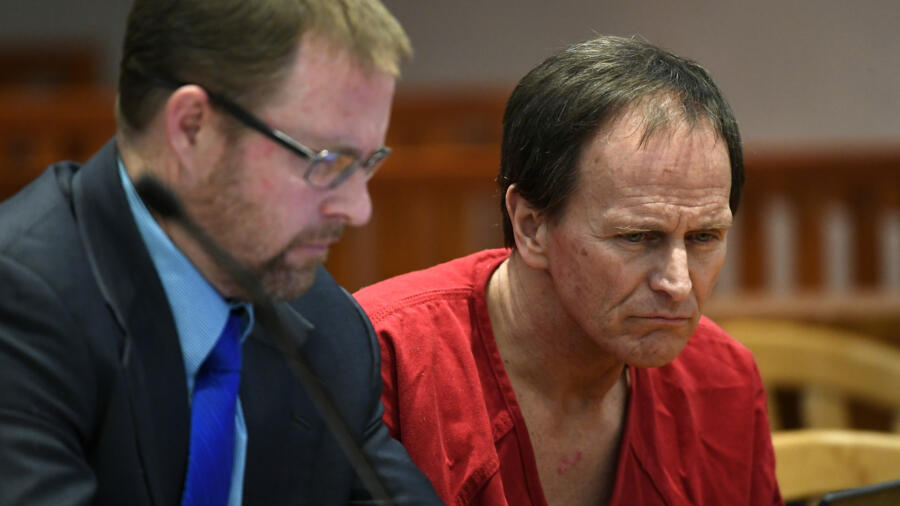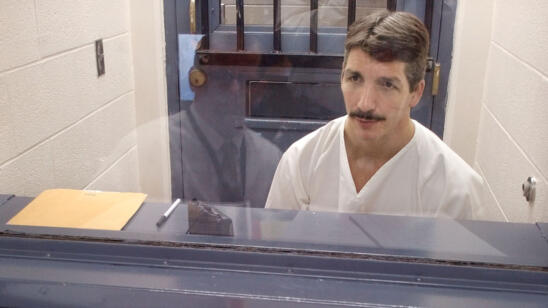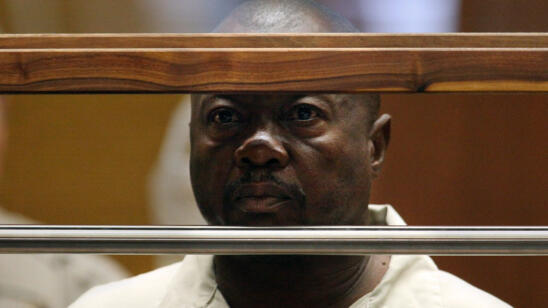Warning: The following contains disturbing descriptions of violence, including sexual violence. Reader discretion is advised
It took 38 years for the victims of the so-called “Hammer Killer” to get justice, but finally Alex Christopher Ewing was held accountable in the vicious murders of three adults and a child.
Ewing broke into the Aurora, Colorado home of Debra and Bruce Bennett the night of January 16, 1984, attacking and killing them and their eldest daughter, Melissa, 8, whom he also sexually assaulted. Their youngest daughter, 3-year-old Vanessa, was gravely injured. Six days prior, Ewing had bludgeoned Patricia Smith to death in nearby Lakewood, Colorado.
Ewing was identified as a suspect in 2018 thanks to DNA testing performed while he was serving a 110-year sentence in Nevada for attacking a couple in August 1984.
In August 2021, Ewing was found guilty of the Bennett murders; in April 2022, the serial killer was convicted of murdering Smith. Ewing also is believed to be responsible for the January 1984 beating and sexual assault of another woman in Aurora, Colorado.
A Cold Case Files episode about the Bennett case aired on May 13, 2022 on A&E. [Watch the episode.]
Hillary Heath, executive producer of Cold Case Files, says while researching the story, she realized Vanessa Bennett had an important story to tell as the only survivor of an unspeakable crime that still haunts people in the Aurora community today.
“What strikes me about Vanessa’s story is that despite all the struggles she has faced, she has also overcome some huge obstacles.” says Heath. “She takes responsibility for the choices she has made in her life. Despite everything, she manages to remain a very upbeat person who gets easily excited and loves to laugh. She told us that she feels compelled to share her story with others because, for her, it’s part of the healing process.”
Vanessa Bennett spoke with A&E True Crime about the struggles she’s faced and her plan to write her life story.
Tell me about your life today.
I am 42, I live in Tucson, Arizona and I am married to my second husband.
Do you have any memories of your parents and sister, or the attack?
I don’t remember them. I only remember the Pink Panther insulation from the house, which makes sense because we’d just moved in. We’d only been there a month or two. I don’t remember the attack.
People have asked me if I wanted to do hypnotherapy. There is one side of me that thought it might help [identify the killer, who was unknown at the time], but the other side of me didn’t want to bring out anything else that came along with that, if that could potentially make me worse.
What injuries did you suffer?
I have paralysis on the left side of my body. I can’t feel if I am holding things tight or letting go. I deal with that on a regular basis. I have a metal plate in my forehead. My jaw was shattered.
What was your life like growing up?
As a child, I don’t think I really acknowledged what happened, but I was made fun of by other kids. I grew up with my paternal grandma. I had insomnia, and I was always angry.
In the 8th grade, my grandma sent me to live with my aunt, and then she sent me to boarding school in high school.
You have been open about your struggle with addiction.
I smoked weed in high school, and I did some drinking, but I started doing cocaine and heroin at 19, when my son was taken away from me. That hit me hard. I got pregnant at 18, and I only had him three months, but I still felt this connection with him. I didn’t know how to be a mother. [Editor’s Note: Vanessa has been in treatment for her addiction for several years.]
What other struggles have you faced?
I have been homeless. I lived under a bridge with my boyfriend. We went to a hospital nearby to wash our hair. I was in jail for things like shoplifting, assault, domestic violence, trespassing, drug possession.
What where the emotional consequences of the attack and aftermath?
I have borderline personality disorder, post-traumatic stress disorder, bipolar disorder and attention-deficit/hyperactivity disorder. When I was a teenager, I was a cutter and I slit my wrists.
Do you have a relationship with your children?
I met my son in 2018 for the first time as an adult. He is a straight-A student. It’s nice to see that I created somebody in my image that portrays good things, because I felt I was so evil. Now he knows he can call me if he wants to. My two girls are with a cousin on my father’s side. They won’t let me see them or know where they live.
Are you close to anyone in your family?
I am close to one cousin who’s like a big sister to me, and to one of my uncles.
How did you feel when Ewing was finally identified and charged?
I was kind of shocked. I figured they would never catch him. I figured he was either in jail or he was dead. There’s only so many roads you can go with that.
Did you feel any relief?
Not really. My life had already been ruined. I felt like if it [catching the killer] made everybody comfortable, it was great, and it should be. But for me, the damage had already been done.
How did it feel to be at Ewing’s trial?
When they played the tape of the 911 call my grandma made, she didn’t even know the address [of her son’s home] because we had just moved there. It was pretty freaky, because I always looked at her as a person who was in control. To hear her out of control was weird. It was unsettling.
Seeing the pictures and the evidence, the piece of carpet they cut [out], that was hard to see. I left when I knew the pictures of my sister were going to be next. When I did my victim impact statement, everybody was crying when I told them everything I went through.
How is your life now?
I am in a better place. I am on disability. My husband is disabled too, but they won’t give him disability, so we are only living on $700. We get food stamps, and relatives help us. We are getting by. I am very resourceful.
You want to work on your life story, right?
Yes, I love writing. It releases a lot of stuff for me. With my emotions, I can go from 1 to 100 so easily, and I can’t really feel the in-between emotions when I am going through them. On paper, I can.
Is there something about your story that you think can help others?
Everybody throughout my life asked me how could I go on without my parents. For me, it’s my will to live. My will to live was so strong that I never gave up. Especially as an adult—in any situation, I don’t give up.
Related Features:
Surviving a Serial Killer—and What Comes Afterward


